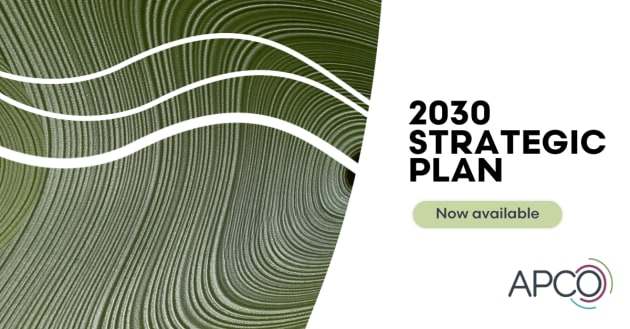The Australian Packaging Covenant Organisation (APCO) has published its 2030 Strategic Plan, which it says "challenges the status quo to deliver on ambitious national packaging targets". The plan includes a new fee model designed to overcome economic barriers that have impeded progress towards the targets, particularly in recycling.
The strategy was developed following a comprehensive review of Australia’s packaging targets undertaken by APCO in 2022, which found that significant technical and economic barriers and gaps were preventing higher recycling rates.

APCO's strategy maps a pathway for industry to take on greater responsibility for delivering the increase in recycling needed to meet national targets. It's the first time Australia has taken this approach, but it's a model that has proven successful in the Netherlands, Belgium and France.
The crux of the strategy is the new eco-modulated membership fee structure designed to incentivise packaging material circularity and, APCO says, will give brands a “social licence to continue to operate in Australia”.
From FY27 APCO’s fee structure will be based on the types and volumes of packaging brands place on the market, with higher fees paid for materials that are more costly to recover, recycle and or dispose. APCO believes this will incentivise those brand owners that eliminate and reduce packaging, adopt reuse models, and transition to materials and formats that are easier to recycle.
Importantly, funds raised through the new fee model will be invested in the downstream system to overcome economic barriers that have hindered progress towards national packaging targets.
APCO says the funds will be directed to supporting end markets, building reprocessing infrastructure and strengthening collection networks.
APCO’s CEO, Chris Foley, said, “We know that our members have made great strides in improving the recyclability of packaging and genuinely want to see our recycling rates improve. But the analysis is clear: we need to take a more hands-on approach to recycling if we’re going to see the results that the community expects.”
Foley added that the new strategy will add to, rather than replace, Australia’s existing recycling system and activity.
“We’re aiming to support and grow the existing system,” he said. “Local governments and the waste and recycling sectors are key. Together, we need to collect and work out where funds can be most effectively applied to drive up recycling. That could be collection systems for problematic materials such as expanded polystyrene or a national consumer education campaign to increase recycling rates at kerbside.”
APCO is accountable to Australia’s Environment Ministers for delivering the national packaging targets. Under the new strategy, the goals of the Covenant remain the same: to optimise the recovery of packaging and materials and prevent the impact of litter.
The goals of the Covenant will be tracked using new indicators, including the reduction of materials sent to landfill. By 2030, this reduction target is set at 1 million tonnes.
APCO says the strategy, including the fee structure, has been developed in consultation with members. Its membership currently number 2400, comprising brand owners, packaging converters and material suppliers. Also included in the consultation were key stakeholders including the waste and recycling sectors, industry associations and governments.
Supporting the new strategy is major end user of packaging, and APCO member, Unilever ANZ. Brooke Sprott, head of Sustainable Business and Communications said, “At Unilever, we believe EPR schemes where companies pay to support the collection and processing of packaging can help to improve recycling systems. The eco-modulated fee structure being developed by APCO is a significant step towards enhancing packaging material circularity in Australia. This initiative aligns with Unilever’s plastic reduction goals and reinforces our commitment to lead by example for systems change on a global scale.”
Suzanne Toumbourou, CEO of the Australian Council of Recycling (ACOR), weighed in: “This collaborative and forward-thinking approach is a game-changer, aiming to enhance packaging material circularity and drive improvements across the entire supply chain. We welcome the focus on creating investment certainty and markets for the recycling system, supporting community confidence and delivering environmental benefits.”
The strategy commenced on 1 July 2024. APCO says the strategy will be updated as required in response to the packaging reform process currently underway under the leadership of the Commonwealth Department of Climate Change, Energy, the Environment and Waste (DCCEEW).
Access the full strategy here. For more information sign up for APCO’s webinar being held on Thursday, 22 August 2024, and look out for PKN Podcast Episode 97, coming next week, in which we ask Chris Foley to explain the eco-modulation model in more detail.






